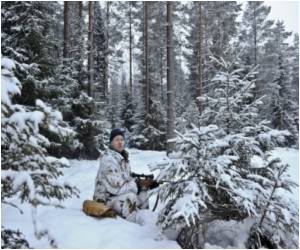Despite sharing similar genes wolves are untamed in nature, while dogs can gladly become man's best friend.

Until now, little was known about sensory development in wolf pups, and assumptions were usually extrapolated from what is known for dogs, Lord explained, the journal Ethology reports.
To address this knowledge gap, she studied responses of seven wolf pups and 43 dogs to both familiar and new smells, sounds and visual stimuli, tested them weekly, and found they did develop their senses at the same time.
But her study also revealed new information about how the two subspecies (dogs and wolves) experience their environment during a four-week developmental window called the critical period of socialization, and the new facts may significantly change understanding of wolf and dog development.
Through observations, Lord confirmed that both wolf pups and dogs develop the sense of smell at age two weeks, hearing at four weeks and vision by age six weeks on average.
However, these two subspecies enter the critical period of socialization at different ages. Dogs begin the period at four weeks, while wolves begin at two weeks.
Advertisement
"No one knew this about wolves, that when they begin exploring they're blind and deaf and rely primarily on smell at this stage, so this is very exciting," Lord noted.
Advertisement
"As each sense engages, wolf pups experience a new round of sensory shocks that dog puppies do not," Lords added.
Meanwhile, dog pups only begin to explore and walk after all three senses, smell, hearing and sight, are functioning. Overall, "It's quite startling how different dogs and wolves are from each other at that early age, given how close they are genetically".
Source-IANS










